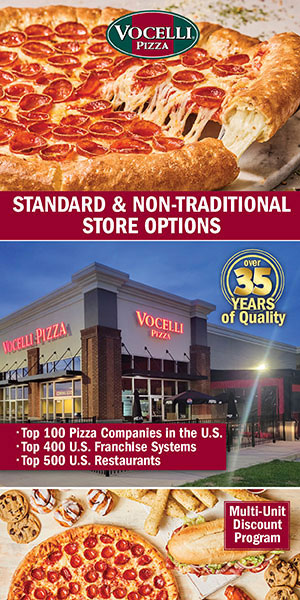Unit-Level Economics for Franchise Businesses

We have all heard that unit-level economics is important in franchising, but going from understanding it in theory to transforming it into action is a big step.
After working with more than 900 franchise brands, we’ve found that a common practice is working together with their franchisees to improve their unit-level economics – not only their top-level sales but also their bottom line. If you’re not doing this today, you will have trouble selling franchises in the future.
But what do we mean by unit-level economics? Simply this: Unit-level economics is a means by which franchisors and franchisees identify, measure, track, and manage the performance of their businesses at individual unit levels.
Applying these principles effectively requires managerial accounting skills, as well as applying correlation analysis to determine key drivers (often referred to as KPIs) that will allow a franchised unit to achieve an acceptable level profitability. Identifying the key drivers that will determine whether or not you can achieve an acceptable level of profitability for a specific unit is important when looking for where operations can improve.
Common business knowledge tells us that you can’t improve what you don’t measure. Thus, franchisors need access to data to help their franchisees continuously improve. What data? Sales, cost of goods sold, labor, customer satisfaction scores, field audit scores, number of proposals sent out the previous month, territory information, etc.
The basic premise of continuous franchise improvement is that you can take a snapshot of these key performance metrics in one unit and compare them, not only with past results but also with the franchise average (or any comparable segment of stores within the franchise). These comparisons give you tremendous insights into the nitty-gritty of your business, allowing you to iteratively address your weaknesses and continuously improve. Below we dive more deeply into why unit-level economics is so important in franchising, and how you can put them in place in your organization.
Why unit-level economics matters for franchise businesses
Strong unit-level economics is the foundation on which all business success sits. Even though most franchisors get royalties from revenue, not profit, having franchisees succeed in the long run creates genuine referrals and organic growth. Those who want sustained growth for both the franchisor and franchisee pay close attention. Strong unit-level economics can also help in franchise development as franchise candidates look for the following:
- Does your business make money?
- Is the business sustainable? Will it continue to make money in the foreseeable future?
- Can I see myself in the business?
A focus like this can build your franchise business from many angles.
Core measurements
The starting point of a unit-level economics initiative will take the following into account:
- Unit profit and loss (P&L)
- Breakeven point
- Payback period
KPIs take center stage when it comes to any program rollout.
Sample unit-level economic program rollout
Are you ready to roll out a program? Surprisingly, we have found that sometimes more-established systems are behind newer systems that may have set up strong programs from the beginning. The best rollouts start from the top, where the owner or CEO sets the tone, and the franchisor team is full of people who care about franchise success on an emotional level.
Step 1: Determine the KPIs
Every business is different, so using the wrong KPIs can do more harm than good. Develop these benchmarks with the input of the franchisees and industry experts. As a starting point, we have developed KPIs for four specific sectors: Restaurant, Health and Fitness, Spa and Salon, and Education.
Step 2: Track and improve KPIs
Now that you have the basic information you need, you can manage your KPIs jointly with your franchisees. If you’re a franchisor with corporate locations, you have skin in the game and can experiment with the business model. Having franchise committees or forums can also help todevelop and share best practices. Another way to encourage performance is to have part of your franchise consultant’s salary variable based on franchisee KPIs.
Step 3: Share information about your KPIs
Sharing information about KPIs is key to an organization’s success. In fact, we now have an increasing number of customers tracking scorecard performance on a monthly basis, as well information from their POS or online reviews.
Today, franchisors who work to improve individual unit-level profitability do more than what is expected of them. They also reap the benefits of their hard work as their system outperforms others and their franchisees are more engaged. In turn, this helps them sell more franchise units – a perfect example of a virtuous cycle. After a few years of small improvements that compound to have dramatic impacts, it will become obvious to prospective franchisees which franchise is the best fit for them.
This article first appeared on FranConnect’s website and is used here with permission. For more information on how to improve the health of your franchise business, download The Executive’s Guide to Franchising Tech in 2022, which comes in 3 versions (CDO, CFO, COO).
Share this Feature
Recommended Reading:
| ADVERTISE | SPONSORED CONTENT |
FRANCHISE TOPICS
- Multi-Unit Franchising
- Get Started in Franchising
- Franchise Growth
- Franchise Operations
- Open New Units
- Franchise Leadership
- Franchise Marketing
- Technology
- Franchise Law
- Franchise Awards
- Franchise Rankings
- Franchise Trends
- Franchise Development
- Featured Franchise Stories
| ADVERTISE | SPONSORED CONTENT |

$175,000
$150,000





 The multi-unit franchise opportunities listed above are not related to or endorsed by Multi-Unit Franchisee or Franchise Update Media Group. We are not engaged in, supporting, or endorsing any specific franchise, business opportunity, company or individual. No statement in this site is to be construed as a recommendation. We encourage prospective franchise buyers to perform extensive due diligence when considering a franchise opportunity.
The multi-unit franchise opportunities listed above are not related to or endorsed by Multi-Unit Franchisee or Franchise Update Media Group. We are not engaged in, supporting, or endorsing any specific franchise, business opportunity, company or individual. No statement in this site is to be construed as a recommendation. We encourage prospective franchise buyers to perform extensive due diligence when considering a franchise opportunity.